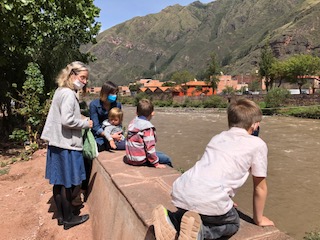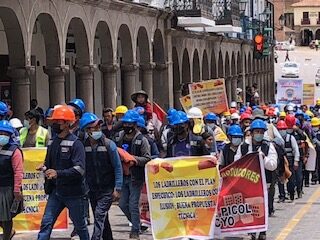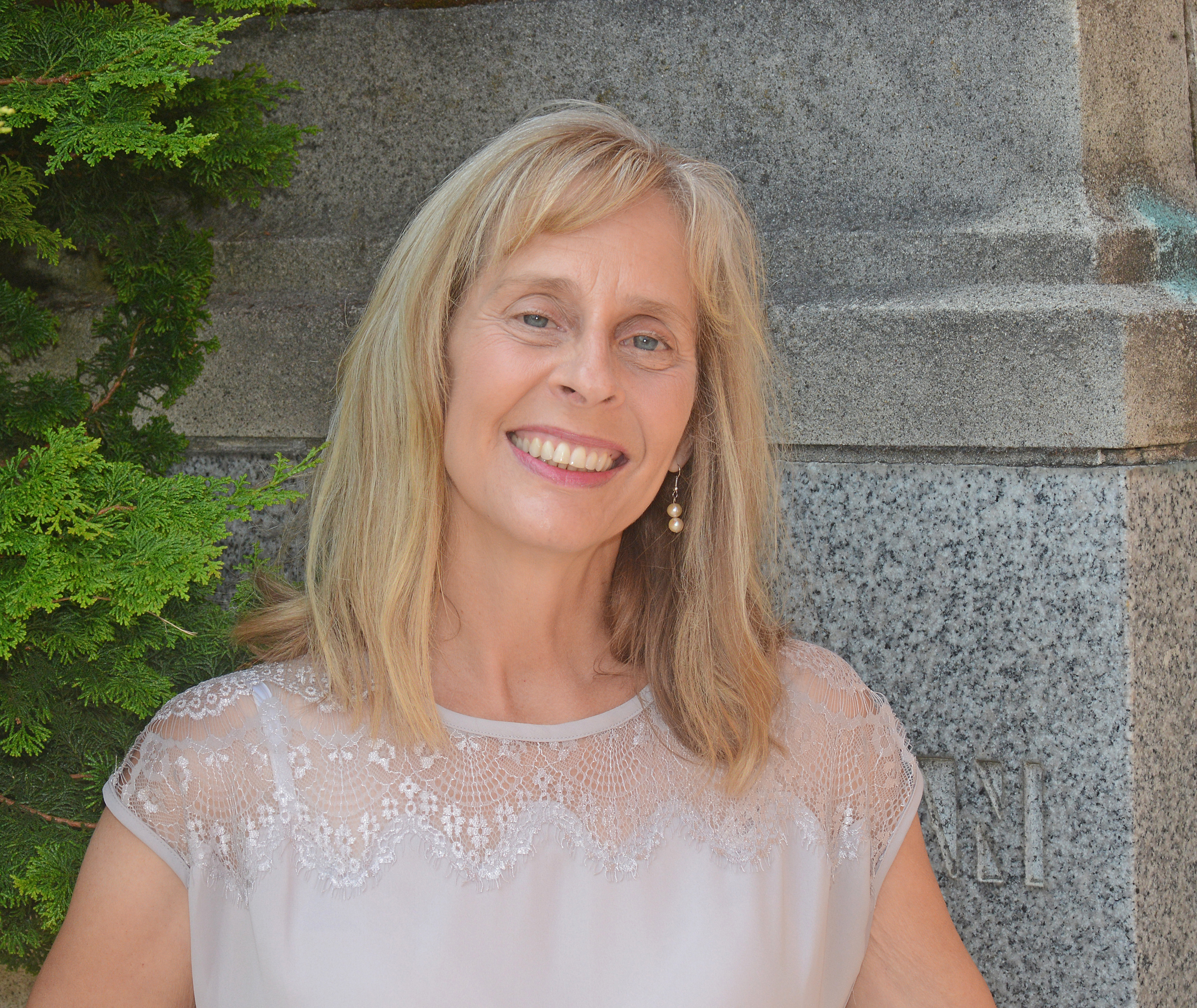My son Brendan and his wife, Erin, have lived in the Peruvian Andes for twelve years, working as missionaries among the Quechua people. (For their website, see https://sites.google.com/site/peruconnallys/. To read a previous post about them, see https://conniehamptonconnally.com/dentistry-and-caring-at-13000-feet/.) Their three children were all born in Peru and have both U.S. and Peruvian citizenship. My husband and I have visited the family frequently, and the last two visits were fairly long. Two years ago we stayed for three months in Abancay, the smallish mountain city where the family lived at the time. This year we visited for two months in Cusco, the 11,000-ft-high city where they now live. During both of these extended visits, we rented our own apartment. Strange to say, Andean Peru has become kind of a home-away-from-home, although it’s a place where nobody looks like us or talks like us. On this blog I’ve written a number of posts about Peru itself, but this post reflects on what Peru has shown me about myself and my own country.
Life as a Gringa
Rory and I are unremarkable-looking whites, and here in the U.S. we blend right in with the crowd. In Andean Peru, almost everyone is black-haired, brown-skinned, and short. Everywhere we go, we stand out as gringos. This hasn’t been a problem: we treat Peruvians cordially and with respect, and they return the favor. I have finally acquired enough Spanish to converse with them, and I enjoy this, despite my floundering. Yet it’s often a struggle to answer Peruvians’ questions about life in my homeland, which most of them have never seen nor even learned much about. Since I’m only in Peru for a few months at a time, being an extranjera (foreigner, stranger) doesn’t really bother me. Yet I know if I were to live in Peru longer, my foreignness would become painfully lonely for me. I find I’ve gained deeper empathy for immigrants. What must it be like to adjust to a new country where the culture of your heart is not understood and perhaps not valued, either? I can only guess how it would hurt inside.
Missing an Easier Life
I’ve asked myself what I miss about America when I’m in Peru. If I were to stay in the Andes long-term, as my son and daughter-in-law are doing, I would really miss my American friends and intellectual life. (Good luck finding a library in Peru.) But short-term, what I’ve missed were the things I’d taken for granted in the U.S. Things like a heated house. Water that’s safe to drink. Hot showers. Adequate lighting. Bread and pastries that are fresh. (Peruvians can’t afford to throw food away, so if a bakery’s goods don’t sell on Monday, then they’re set out for sale again on Tuesday. And Wednesday. And . . . ) I miss household items that function well and don’t break. (Most Peruvians can’t afford high-quality items, so they’re hard to find for sale.)
In other words, I miss the things that Peruvians do without.
I’ve often heard it said that traveling makes you appreciate what you have. And I do appreciate what I have in America. But what Peru has taught me is a deep respect for people who have far less yet nonetheless handle life with strength and resourcefulness. Peruvians are like this. They’re used to hard work, which for many of them is a source of dignity. Within their extended family systems they take care of each other; and when they hear of needs outside the family, they try to help. This is not to say that Peruvians are perfectly content. They certainly have their frustrations, as demonstrated by their frequent strikes. But they make life work.
What I notice about America, now that I’m home
Every time I come home from Peru, the streets here seem so quiet and empty. Almost eerily so. Where’s the long line for the ATM? Where are the ladies selling flowers or covid masks, or squeezing orange juice? Where’s the dairyman selling milk from his car, with a P.A. system that blares the children’s song La Vaca Lola (Lola the Cow)? Where are the crowded buses? The jackhammers? The stray dogs? The roosters? The radios blasting at six in the morning? Though the noise in Peru can be crazy-making, it’s the sound of life going on.
Here at home, when I take walks in my neighborhood, I often go several blocks without seeing any other pedestrians. We’re all locked in our houses, locked in our cars. This is what we’re used to, but it strikes me as lonely now. We have the things we need . . . but I wonder, are we missing people? Just a thought.






Having had the privilege of visiting Abancay when you were there, I can attest to the mixed emotions, blessings, and difficulties of traveling, and presumably living, in another country. I, too found Peru to be fascinating. The historical sites are amazing, of course, but we also enjoyed life in the town of Abancay–the simplicity, the daily busyness, the friendliness and acceptance of us as visitors, and the colors all around us–beautiful produce and clothing!
We learned so much, tasted so many different things, got a lot of walking exercise up and down hills, and fully enjoyed seeing your son and family’s lives there. Coming home is always an adjustment…things seem too easy, too expensive, too busy. Thank you for sharing your insightful experiences from your very special and unusual travels!
Thanks for writing, Ruth! Glad that experiencing Peru meant a lot to you, just as it did for us.